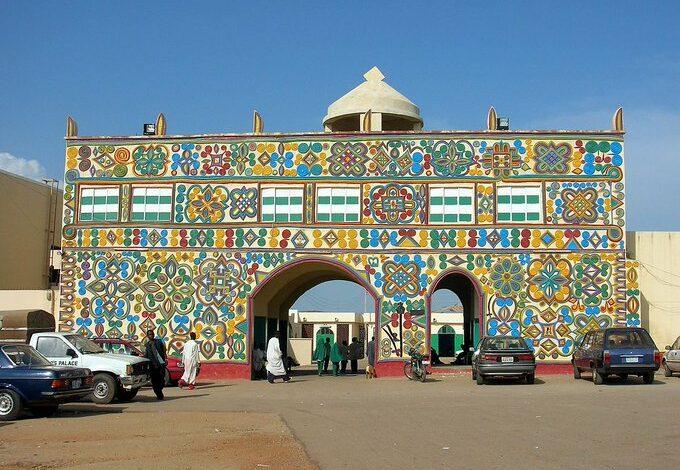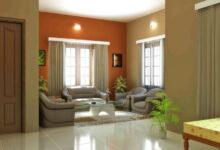
Top 15 Traditional Architectures in Nigeria
Top 15 Traditional Architectures in Nigeria – Nigeria, a country rich in cultural diversity and heritage, is home to a remarkable array of traditional architectural styles. These architectural marvels reflect the unique history, customs, and lifestyles of various ethnic groups across the nation. In this article, we will delve into the top 15 traditional architectures in Nigeria, showcasing the intricate designs, construction techniques, and cultural significance of each structure. From the mud houses of the Hausa-Fulani in the North to the elaborate palaces of the Benin Kingdom in the South, let us embark on a journey to discover the captivating traditional architecture of Nigeria.
The Top 15 Traditional Architectures in Nigeria are:
👉 Relocate to Canada Today!
Live, Study and Work in Canada. No Payment is Required! Hurry Now click here to Apply >> Immigrate to Canada-
The Zuma Rock, Niger State:
Located in Niger State, the Zuma Rock is an iconic natural formation that holds immense cultural and spiritual significance. Although not man-made, it is considered a symbol of traditional Nigerian architecture due to its prominence in local folklore and the inspiration it provides for architectural designs in the region.Top 15 Traditional Architectures in Nigeria
Read Also: Top 15 Industry-Relevant Digital Marketing Courses
-
The Nri Kingdom Agụ-Ọba Palace, Anambra State:
The Agụ-Ọba Palace in Nri, Anambra State, is an architectural gem that reflects the rich cultural heritage of the Nri Kingdom. Built with locally sourced materials, the palace showcases intricate mud walls, carved wooden doors, and thatched roofs. Its layout and design symbolize the hierarchical structure of the kingdom.
-
The Kano City Walls, Kano State:
The ancient city of Kano boasts a series of impressive walls that once served as protective fortifications. Constructed with compacted mud and sand, these walls encircled the city and provided defense against external threats. The walls are not only a testament to the architectural prowess of the Kano people but also a reminder of the city’s historical significance.
-
The Osun-Osogbo Sacred Grove, Osun State:
The Osun-Osogbo Sacred Grove is a UNESCO World Heritage Site renowned for its fusion of nature and architectural elements. The grove is home to numerous shrines, sculptures, and artworks, all integrated into the lush forest surroundings. The traditional architecture within the grove showcases the Yoruba people’s reverence for nature and their unique building techniques.
Read Also: Top 15 Natural Attractions in Nigeria
-
The Ogbunike Caves, Anambra State:
The Ogbunike Caves, located in Anambra State, are not only a natural wonder but also exhibit traditional architectural elements. The cave system consists of various chambers and tunnels, some of which contain altars, shrines, and carved figures. The caves serve as a spiritual site and reflect the architectural practices of the Igbo people.
-
The Sukur Cultural Landscape, Adamawa State:
The Sukur Cultural Landscape, a UNESCO World Heritage Site, is renowned for its unique architectural features. The community’s homes are constructed with mud, wood, and thatch, forming a cohesive architectural ensemble. The terraced fields, huts, and granaries within the landscape showcase the resourcefulness and ingenuity of the Sukur people.NYSC Portal
👉 Relocate to Canada Today!
Live, Study and Work in Canada. No Payment is Required! Hurry Now click here to Apply >> Immigrate to Canada-
The Gashaka-Gumti National Park, Taraba State:
The Gashaka-Gumti National Park is not only a biodiversity hotspot but also houses traditional architectural structures. The Mambilla people, who inhabit the park, construct their homes with locally available materials such as bamboo, thatch, and clay. These eco-friendly designs harmoniously blend with the natural environment.Good morning My Love Message
-
The Oron Museum, Akwa Ibom State:
The Oron Museum in Akwa Ibom State preserves and showcases the traditional architectural styles of the Efik people. The museum building itself is a splendid example of Efik architecture, featuring intricate carvings, ornate designs, and decorative motifs that represent the community’s cultural heritage.
Read Also: 15 most Highly sought-after precious stones
-
The Aso Rock, Federal Capital Territory:
Aso Rock, located in Abuja, is not only the political center of Nigeria but also a symbol of the nation’s architecture. The Presidential Villa, constructed on the rock, blends modern and traditional elements, reflecting the fusion of Nigeria’s cultural diversity within a contemporary architectural framework.Romantic love message
-
The Benin Royal Palace, Edo State:
The Benin Royal Palace, known as “Igun Eronmwon,” showcases the grandeur and opulence of the Benin Kingdom. The palace complex, built with earth and wood, features imposing walls, intricately carved pillars, and ornate decorations. It serves as a testament to the architectural achievements and royal heritage of the Benin people.
-
The Kuti Heritage Museum, Abeokuta:
The Kuti Heritage Museum, located in Abeokuta, Ogun State, is housed in the ancestral home of the Kuti family, including the renowned musician Fela Kuti. The building is a prime example of traditional Yoruba architecture, with its courtyard layout, adobe walls, and palm frond roofs, showcasing the building techniques and cultural traditions of the Yoruba people.
-
The Lamido’s Palace, Adamawa State:
The Lamido’s Palace in Adamawa State is a striking architectural masterpiece that reflects the traditional Hausa-Fulani style. The palace features ornate gates, decorative motifs, and intricate wood carvings. It serves as a symbol of authority and cultural heritage, showcasing the architectural finesse of the Hausa-Fulani people.Information guide Nigeria
Read Also: 15 Most Serene Environments in Northern Nigeria
-
The Wukari Jubilee Museum, Taraba State:
The Wukari Jubilee Museum in Taraba State houses a collection of traditional architectural artifacts from the Jukun Kingdom. The museum displays architectural models, carvings, and pottery that represent the building techniques and styles of the Jukun people. It offers insight into the historical and cultural significance of their architectural heritage.
-
The Gidan Makama Museum, Kano State:
The Gidan Makama Museum, located in Kano, showcases traditional Hausa architecture and serves as a repository of cultural artifacts. The museum buildings feature ornate doorways, intricate carvings, and traditional designs, providing visitors with a glimpse into the architectural heritage of the Hausa people.
-
The National Arts Theatre, Lagos State:
The National Arts Theatre in Lagos is an iconic structure that represents Nigeria’s modern architectural achievements. The design incorporates traditional elements such as the distinctive cone-shaped roof and cultural motifs. The theater serves as a hub for artistic performances and is a symbol of national pride.JAMB portal
Read Also: 15 Best Functional Cabinets
Conclusion
Nigeria’s traditional architecture encompasses a diverse range of styles, materials, and cultural influences, reflecting the nation’s rich heritage. From the ancient city walls of Kano to the intricate designs of the Benin Royal Palace, each architectural marvel tells a unique story of the communities that built them. These structures not only serve as cultural symbols but also highlight the resourcefulness and creativity of Nigerian architects and builders. Exploring the top 15 traditional architectures in Nigeria provides a fascinating journey through the country’s history, traditions, and cultural diversity.
Check JAMB Result
Check and Confirm: How much is Dollar to Naira







